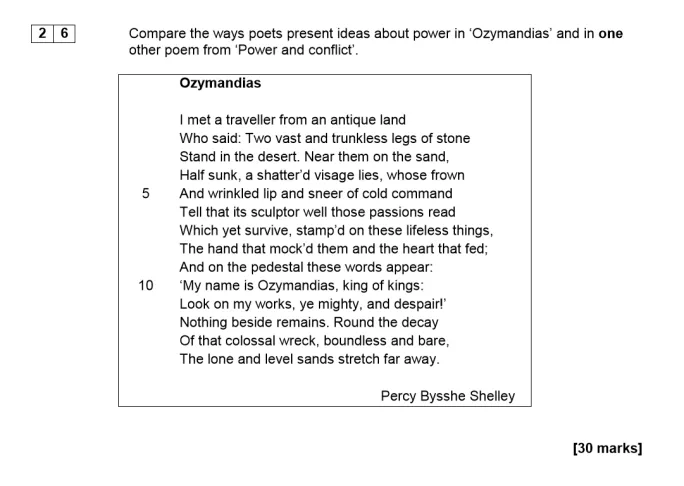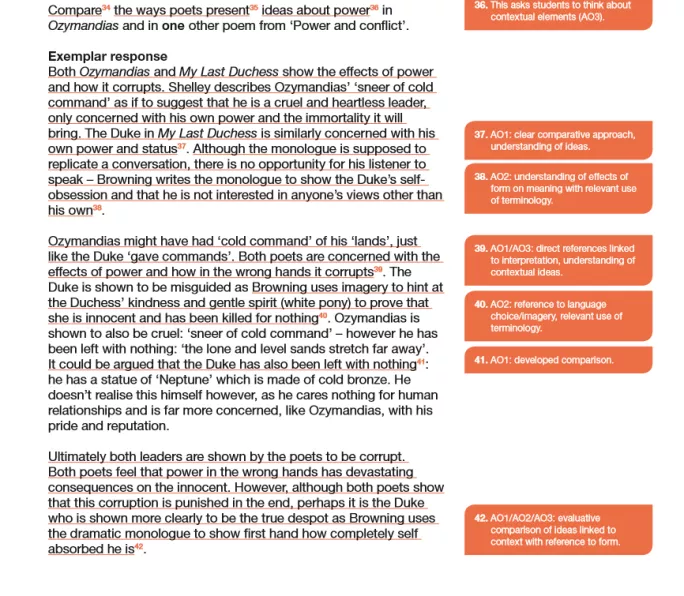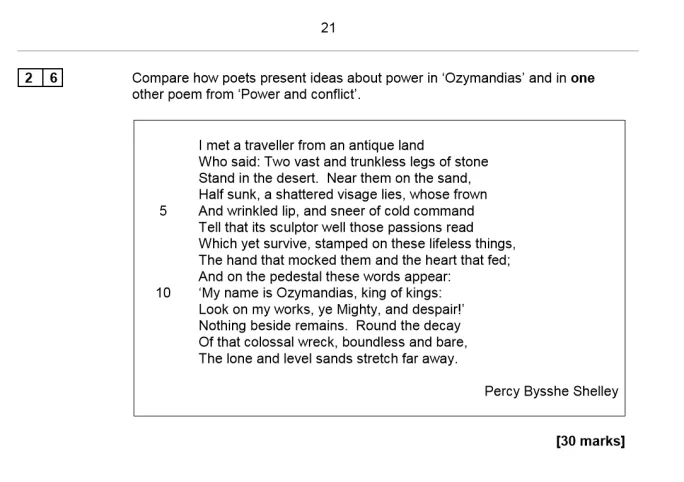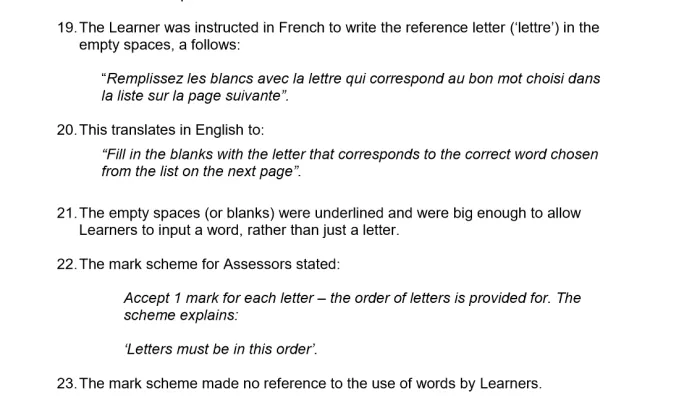
- Home
- Exam board’s GCSE and A-level blunders
Exam board’s GCSE and A-level blunders

The UK’s largest exam board for GCSEs and A levels has been publicly reprimanded and fined by the regulator for errors in the marking of its papers.
As well as having to pay £1 million for a repeated breach of the same regulation relating to marking reviews, AQA has also received a public rebuke from Ofqual for failing to identify the risks associated with using a question from a specimen paper in a live exam. It has also been fined £50,000 for incorrect marking of its A-level French exam.
Related: AQA pays £1m for allowing markers to check own work
Quick read: Exam board accused of ‘betraying’ GCSE English pupils
News: Ofqual threatens more exam board naming and shaming
In AQA’s May 2018 English literature GCSE paper, a question related to the Power and Conflict poetry anthology was markedly similar to a specimen exam paper in 2014.
The question - on Ozymandias by Percy Bysshe Shelley - was “almost identical” according to Ofqual, and included a sample response in 2014 from a student about how this question might be answered, although the answer was incomplete and no mark was attached to it.

AQA told Ofqual it took the decision to repeat the question because it wanted teachers to cover the whole of the specification without excluding texts or areas featured in past papers.

The board later received 38 complaints from candidates, parents and centres about the paper.
According to Ofqual, the “general tone of the complaints was a sense of unfairness and disadvantage towards candidates who had answered the alternative question choice”.

Ofqual found that the breach was not serious enough for a fine to imposed, and noted that “AQA has conducted a comprehensive statistical analysis of learner performance in the examination which demonstrated that there was no significant advantage or disadvantage to learners, regardless of which question option they answered”.
However, the regulator said it should be marked publicly in the interests of “promoting public confidence” as well as providing a deterrent for AQA and other boards to use old assessment materials in live exams in future.
Mark Bedlow, AQA’s interim chief executive, said: “We used this question because it’s important that no one thinks a topic won’t come up if it’s already featured in a past paper. We told Ofqual about this the day before the exam, but we accept that we should have done it sooner.”
In a separate incident, AQA was fined £50,000 over a breach of the rules relating to the marking of its A-level French paper in 2018.
“AQA’s GCE French examination paper in summer 2018 contained a ‘gap fill’ question which required learners to follow instructions in French and identify the correct word for each space from a table of possible answers, each of which had a reference letter,” Ofqual said.
“The empty spaces were underlined and were big enough to allow learners to input a word, rather than just a letter. Questions of this type usually include a box, rather than an underlined space. This caused confusion for 10 per cent of the learners, who input words rather than letters.”

The mark scheme did not refer to the use of words, and examiners were instructed to award no marks to candidates who had used words rather than letters, even in cases where it was clear candidates had understood the passage.
After receiving complaints, AQA changed their approach and decided to award marks to pupils who had input the correct words. This led to 527 candidates’ marks being affected, with 135 of those receiving a higher grade.
In a small number of cases, candidates’ university places were initially affected by the error, but AQA liaised with Ucas to ensure candidates did not miss out on their university of choice.
The exam board has accepted that the original mark scheme was not fit for purpose. The board also initially described the change in marks as a “goodwill gesture”. According to Ofqual, AQA’s response “should have been to correct the approach set out in the mark scheme which AQA subsequently accepted was not fit for purpose”.
Mr Bedlow said: “Our mark scheme for this one A-level French question was too prescriptive. We gave the affected students the extra marks they deserved - and we’ve improved the way we check our papers to stop this happening again.”
Register with Tes and you can read five free articles every month, plus you'll have access to our range of award-winning newsletters.
Keep reading for just £4.90 per month
You've reached your limit of free articles this month. Subscribe for £4.90 per month for three months and get:
- Unlimited access to all Tes magazine content
- Exclusive subscriber-only stories
- Award-winning email newsletters
You've reached your limit of free articles this month. Subscribe for £4.90 per month for three months and get:
- Unlimited access to all Tes magazine content
- Exclusive subscriber-only stories
- Award-winning email newsletters



